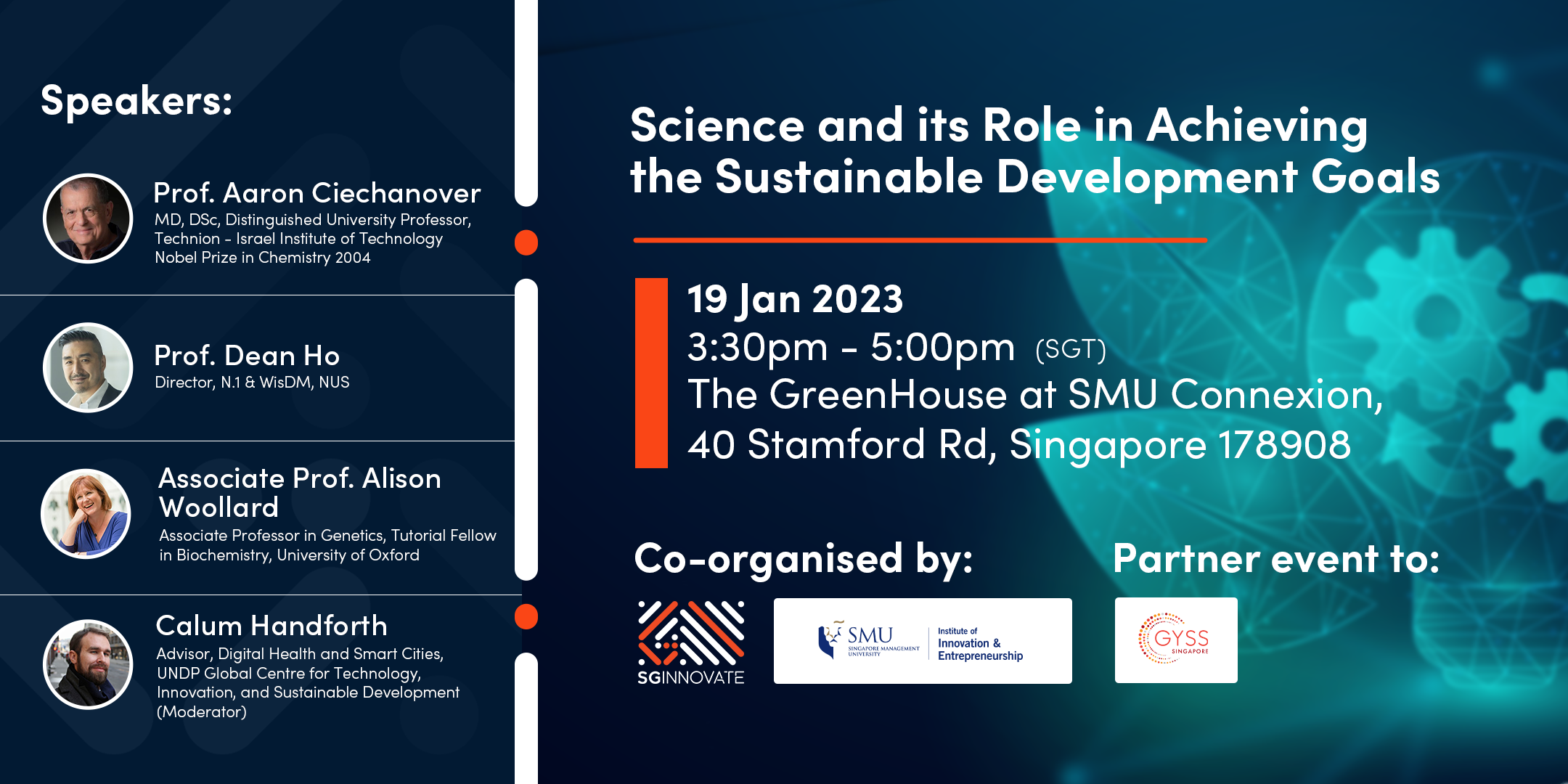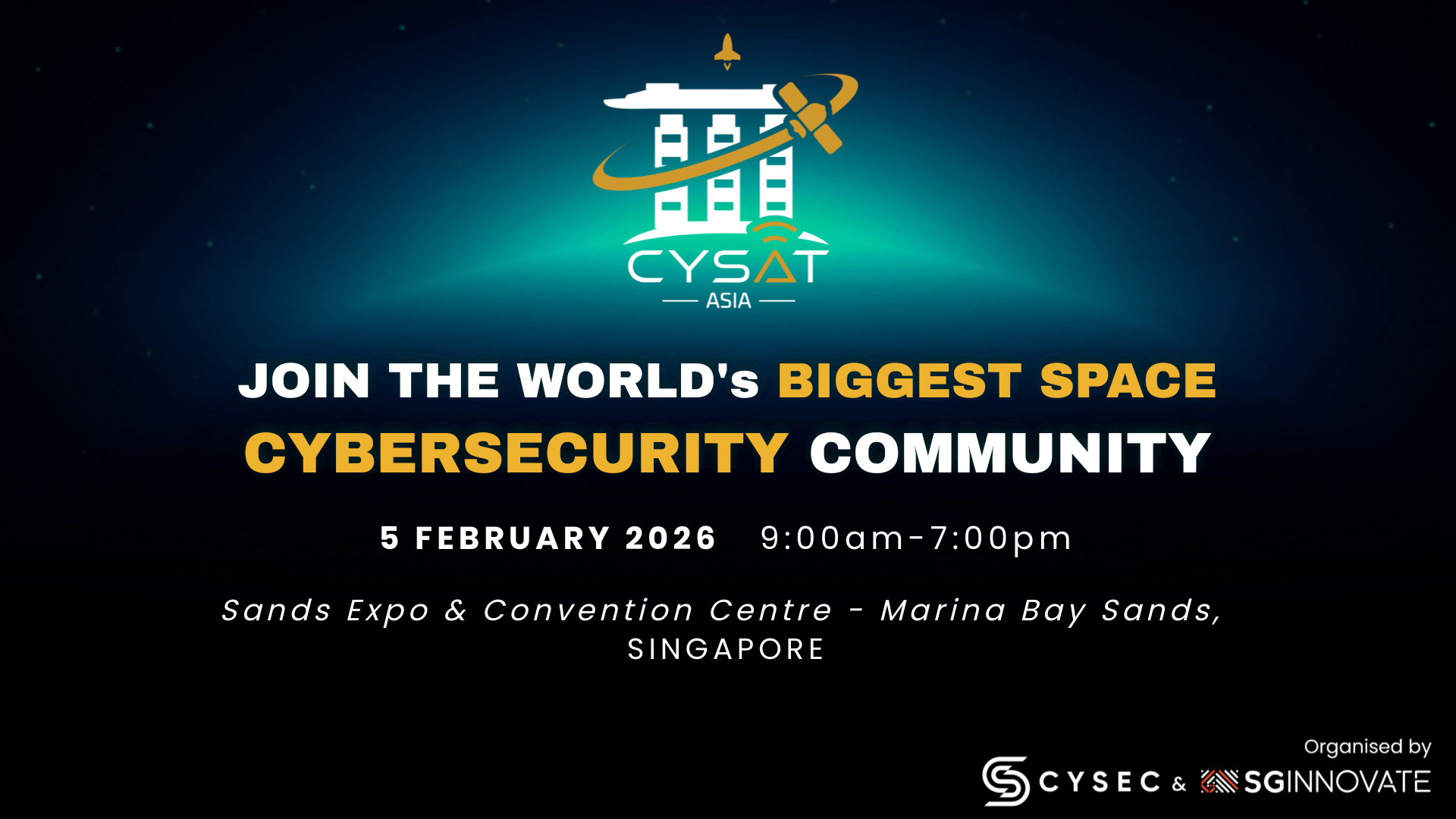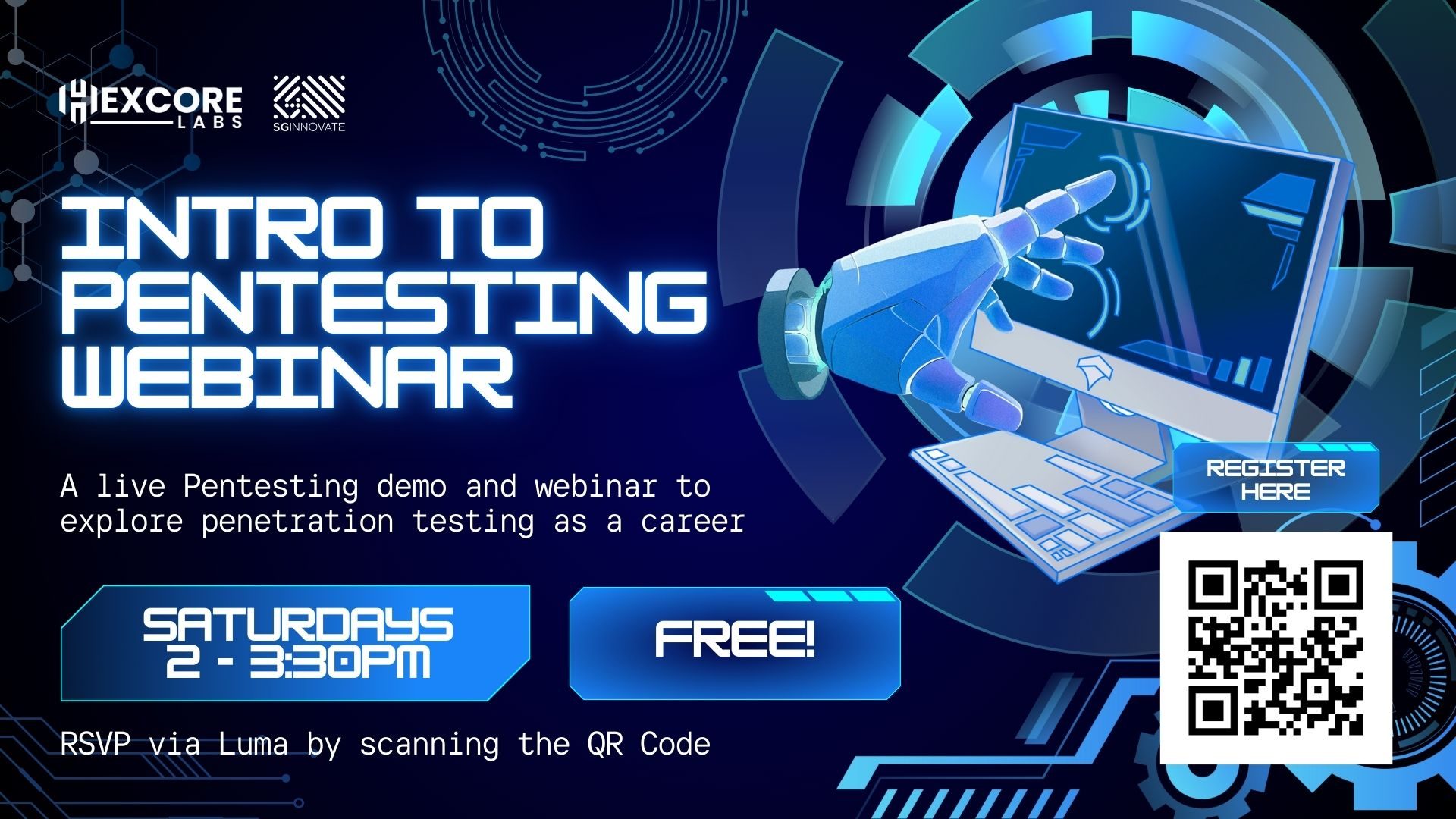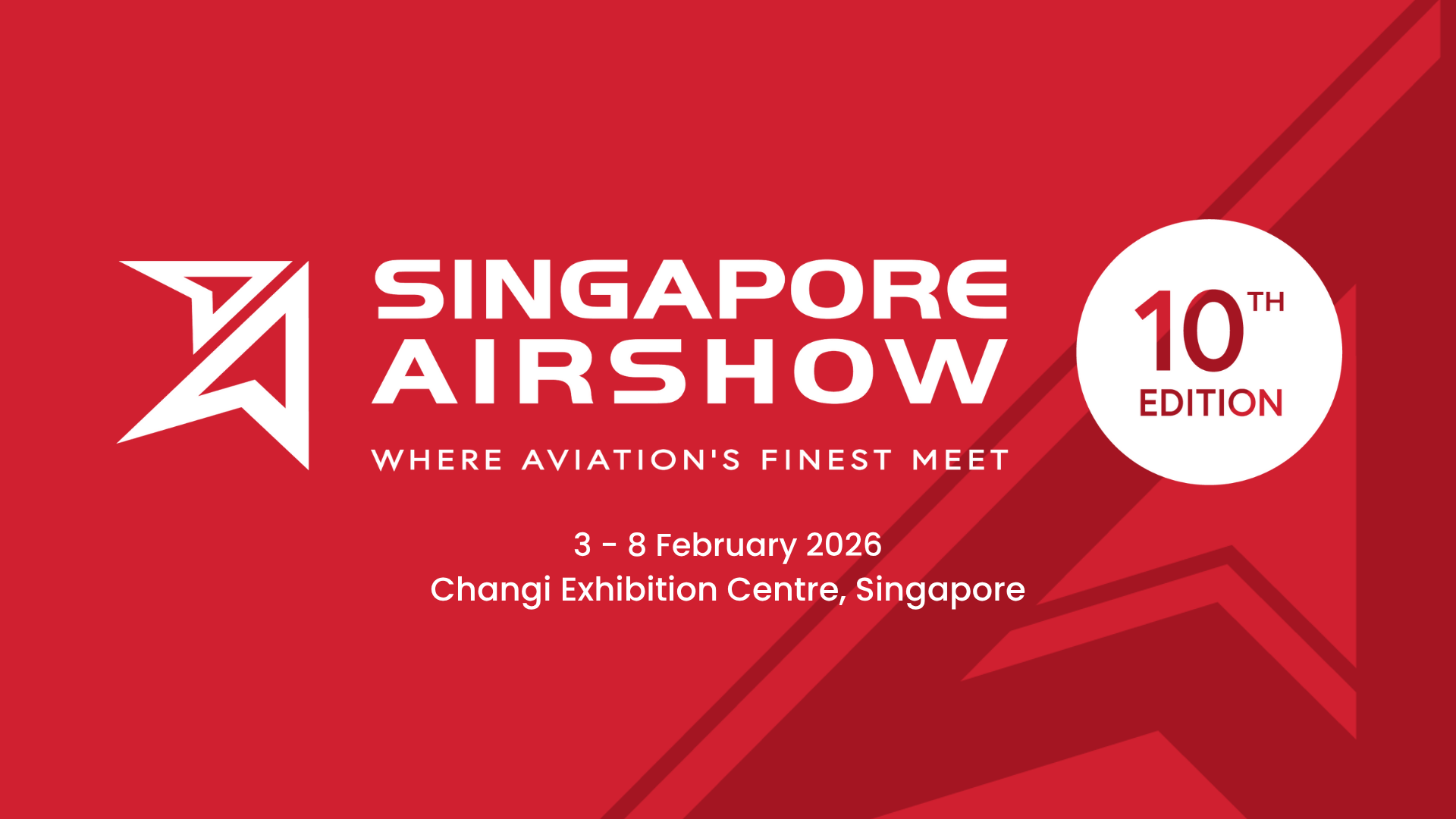Overview
Science has pushed the boundaries of what is possible throughout history and shattered barriers to expand human potential. With just 7 years left to 2030, we must act now to hasten much needed transformations. And science can help us achieve this. Against this backdrop, this panel will discuss: (i) how bioethics can impact progress of SDGs, (ii) in the realm of medical research what the bio...
Science has pushed the boundaries of what is possible throughout history and shattered barriers to expand human potential. With just 7 years left to 2030, we must act now to hasten much needed transformations. And science can help us achieve this. Against this backdrop, this panel will discuss: (i) how bioethics can impact progress of SDGs, (ii) in the realm of medical research what the bioethics considerations that need to be made in relation to SDGs and (iii) how can more effective science communication help us enhance SDGs.
Date: 19 January 2023, Thursday
Time: 3:30pm - 5:00pm (Singapore Time / UTC +8)
Location: The GreenHouse at SMU Connexion, 40 Stamford Rd, Singapore 178908
Speaker Profiles:
Professor Aaron Ciechanover, MD, DSc, Distinguished University Professor, Technion - Israel Institute of Technology, Nobel Prize in Chemistry 2004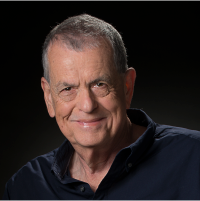
Aaron Ciechanover was born in Haifa, Israel in 1947. He is currently a Distinguished Research Professor in the Faculty of medicine at the Technion - Israel Institute of Technology in Haifa, Israel. He received his M.Sc. (1971) and M.D. (1973) from the Hebrew University in Jerusalem. He then completed his national service (1973-1976) as military physician, and continued his studies to obtain a doctorate in biological sciences in the Faculty of Medicine in the Technion (D.Sc.; 1982).
There, as a graduate student with Dr. Avram Hershko and in collaboration with Dr. Irwin A. Rose from the Fox Chase Cancer Center in Philadelphia, USA, they discovered that covalent attachment of ubiquitin to a target protein signals it for degradation. They deciphered the mechanism of conjugation, described the general proteolytic functions of the system, and proposed a model according to which this modification serves as a recognition signal for a specific downstream protease.
As a post- doctoral fellow with Dr. Harvey Lodish at the M.I.T., he continued his studies on the ubiquitin system and made additional important discoveries. Along the years it has become clear that ubiquitin-mediated proteolysis plays major roles in numerous cellular processes, and aberrations in the system underlie the pathogenetic mechanisms of many diseases, among them certain malignancies and neurodegenerative disorders.
Consequently, the system has become an important platform for drug development. Among the numerous prizes Ciechanover received are the 2000 Albert Lasker Award, the 2002 EMET Prize, the 2003 Israel Prize, and the 2004 Nobel Prize (Chemistry; shared with Drs. Hershko and Rose). Among many academies, Ciechanover is member of the Israeli National Academy of Sciences and Humanities, The European Molecular Biology Organization (EMBO), the American Academy of Arts and Sciences (Foreign Fellow), the American Philosophical Society, the National Academies of Sciences (NAS) and Medicine (NAM) of the USA (Foreign Associate), the Pontifical Academy of Sciences at the Vatican, the Chinese Academy of Sciences (CAS; Foreign Member), the Russian Academy of Sciences (Foreign Member), and the German Academy of Sciences (Leopoldina).
Professor Dean Ho, Director, N.1 & WisDM, National University of Singapore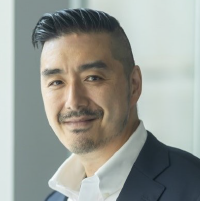
Professor Dean Ho is currently Provost’s Chair Professor, Director of The Institute for Digital Medicine (WisDM) at the Yong Loo Lin School of Medicine; Director of The N.1 Institute for Health (N.1), and Head of the Department of Biomedical Engineering at the National University of Singapore.
Prof. Ho and collaborators successfully developed and validated CURATE.AI, a powerful artificial intelligence platform that personalizes human treatment for a broad spectrum of indications ranging from oncology, to digital therapeutics and infectious diseases, among others. His team also developed IDentif.AI to optimise combination therapy design against SARS-CoV-2 and to address antimicrobial resistance. Recently, his team unveiled WisDM Green, a technology platform to sustainably address food security and optimise yield while preserving nutritional content.
Prof. Ho is an elected Fellow of the US National Academy of Inventors (NAI), American Association for the Advancement of Science (AAAS), the American Institute for Medical and Biological Engineering (AIMBE), and the Royal Society of Chemistry. He was also recently named to the HIMSS Future50 Class of 2021 for his internationally-recognised leadership in digital health. Prof. Ho is also a Subgroup Lead in the World Health Organization (WHO) Working Group for the regulation of AI for Health. Prof Ho has appeared on the National Geographic Channel Program “Known Universe,” and Channel News Asia’s “The Hidden Layer: Healthcare Trailblazers". His discoveries have been featured on CNN, The Economist, National Geographic, Forbes, Washington Post, NPR and other international news outlets.
Prof. Ho is a recipient of the Tech Heroes from Crisis Pathfinder Award from the Singapore Computer Society, NSF CAREER Award, Wallace H. Coulter Foundation Translational Research Award, and V Foundation for Cancer Research Scholar Award, among others. He has also served as the President of the Board of Directors of the Society for Laboratory Automation and Screening (SLAS), a leading global drug development organization.
Associate Prof. Alison Woollard, Associate Professor in Genetics, Tutorial Fellow in Biochemistry, University of Oxford
Alison Woollard is an Associate Professor in the Biochemistry Department at Oxford University where she leads a research team working on the developmental genetics of the nematode worm Caenorhabditis elegans (C. elegans).
Alison's current work concerns molecular mechanisms of cell fate determination and morphogenesis during C. elegans development, trying to unpick the complex mechanisms by which cells become different from one another as an organism develops from egg to adult. She also has a developing interest in the biology of ageing, with an emphasis on the contribution of chromatin regulators and the WRN homologue wrn-1 to lifespan and healthspan regulation.
Alison is also very committed to public engagement, believing that science must be more strongly embedded in society as an important cultural ambition, as well as a crucial driver of economic competitiveness, improved healthcare and sensible public and governmental policy. She presented the 2013 Royal Institution Christmas Lectures series Life Fantastic, broadcast on BBC4, and since then has taken part in a diverse range of public engagement activities, from pop festivals to stand-up comedy.
Alison was awarded the 2015 Genetics Society JBS Haldane Lectureship to recognise her public engagement activities and was recently elected Vice President of the Genetics Society with a special responsibility for public understanding of genetics. Her BBC Radio 4 Life Scientific was broadcast in spring 2017.
Moderator:
Calum Handforth, Advisor, UNDP Singapore Centre for Technology, Innovation, and Sustainable Development
Calum has led innovation and digitalisation efforts globally and has also advised governments around the world. Calum has a wide-ranging background that includes experience in central and local government, the private sector, civil society, and international development. He has drafted and led legislation, policy, and strategy to catalyse innovation; delivered digital infrastructure programmes; and shaped the development of numerous digital and innovation initiatives – including those focusing on connectivity, digital health, digital identity, digital service delivery, and digital inclusion programmes. Calum is also Co-Chair of the Digital Infrastructure Taskforce, part of the World Economic Forum’s G20 Working Group on Smart Cities, a Panel Member of the Mayor of London’s Infrastructure Advisory Panel, a Policy Fellow at the University of Cambridge Centre for Science and Policy, and a Churchill Fellow



